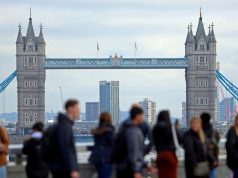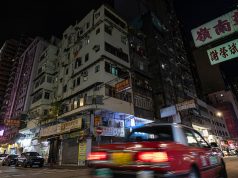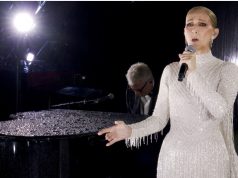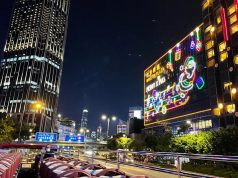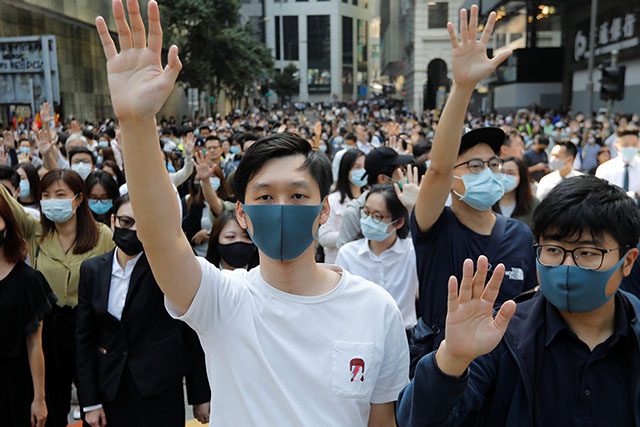
HONG KONG — The Chinese and Hong Kong governments condemned on Friday an attack by a “violent mob” on the city’s justice secretary in London, the first direct altercation between demonstrators and a government minister during months of often violent protests.
Secretary for Justice Teresa Cheng, who was in London to promote Hong Kong as a dispute resolution and deal-making hub, was targeted by a group of protesters who shouted “murderer” and “shameful.”
A statement by the Hong Kong government said Cheng suffered “serious bodily harm” but gave no details.
The Chinese embassy in the UK said Cheng was pushed to the ground and sustained a hand injury.
“(Cheng) was besieged and attacked by dozens of anti-China and pro-independence activists,” the Chinese embassy said in a statement. The incident showed that the “violent and lawless perpetrators” were now taking their violence abroad, it said.
China has lodged a formal complaint with Britain and urged British authorities to bring the perpetrators to justice.
Hong Kong‘s leader Carrie Lam also strongly condemned the attack.
The former British colony’s government said in a separate statement: “The secretary denounces all forms of violence and radicalism depriving others’ legitimate rights in the pretext of pursuing their political ideals, which would never be in the interest of Hong Kong and any civilized society.”
The incident came amid escalating violence in Chinese-ruled Hong Kong, where a student protester died earlier this month after falling from a parking lot during demonstrations.
A 70-year-old street cleaner, who videos on social media showed had been hit in the head by a brick thrown by “masked rioters”, died on Thursday, authorities said.
The Food and Environmental Hygiene Department expressed profound sadness on Friday at the death of its worker and said it was providing assistance to his family.
Anti-government protesters paralyzed parts of Hong Kong for a fifth day on Friday, forcing schools to close and blocking some highways as students built barricades in university campuses and authorities struggled to tame the violence.
Protesters used barriers and other debris to block the Cross-Harbour Tunnel that links Hong Kong island to Kowloon district, leading to severe traffic congestion.
The government once again urged employers to adopt flexible working arrangements amid the chaos.
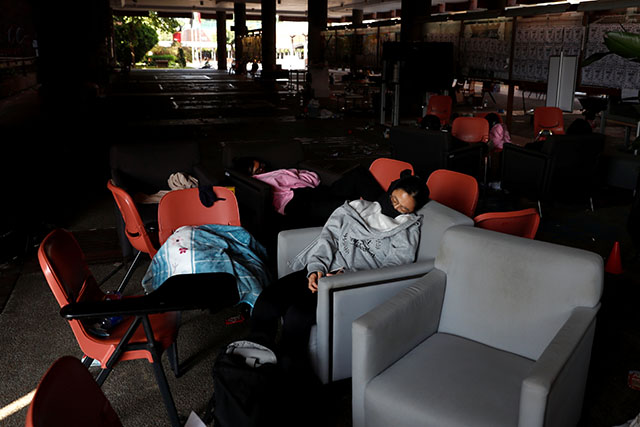
The protests escalated in June over a now-scrapped extradition bill that would have allowed people to be sent to mainland China for trial.
They have since evolved into calls for greater democracy, among other demands.
Cheng, the embattled Lam’s chief legal adviser, played a key role in pushing forward the proposed extradition bill that ignited the protests.
The months-long protests have plunged Hong Kong into its biggest political crisis in decades and pose the gravest popular challenge to Chinese President Xi Jinping since he came to power in 2012.
Xi said in Brazil on Thursday stopping violence was the most urgent task for Hong Kong.
‘People heartbroken’
Flash mobs again protested at lunchtime in the heart of the financial hub and also in the eastern district of Tai Koo, where office workers wearing now-banned face masks chanted “Liberate Hong Kong, revolution of our time.”
“Things that happened in these few months have made people heartbroken,” said a 31-year-old office assistant who gave her name as Nicole.
“The government only came out to condemn rioters… They have never thought why so many rioters have emerged in our city and why ordinary citizens support them,” she said.
Thousands of students remain hunkered down at several universities, surrounded by piles of food, bricks, petrol bombs, catapults and other homemade weapons.
Police said the prestigious Chinese University had “become a manufacturing base for petrol bombs” and the students’ actions were “another step closer to terrorism”.
Around 4,000 people, aged between 12 and 83, have been arrested since the unrest escalated in June.
The demonstrations have paralyzed parts of the city and battered the retail and tourism sectors, with widespread disruptions across the financial center and no end in sight to the violence and vandalism.
Video footage of the Chinese People’s Liberation Army garrison headquarters near Hong Kong‘s Central business district on Friday showed more than a dozen troops conducting what appeared to be anti-riot drills against fake protesters carrying black umbrellas.
The anti-government protests have taken a heavy toll and Hong Kong was expected to confirm on Friday it had fallen into recession for the first time in a decade amid concerns the economy could be in even worse shape than feared.
Alibaba Group Chairman Daniel Zhang, however, said Hong Kong‘s future is “bright” as the e-commerce giant kicked off a retail campaign for its secondary listing in the city.
Many in Hong Kong are angry at what they see as China stifling freedoms guaranteed under the “one country, two systems” formula put in place when Hong Kong returned to Chinese rule in 1997.
China denies interfering in Hong Kong and has blamed Western countries, including Britain and the United States, for stirring up trouble.
A congressional advisory body urged the U.S. Congress on Thursday to enact legislation that would suspend the special economic status Hong Kong enjoys under U.S. law if China deploys security forces to crush the protests.
The Hong Kong administration reiterated that foreign governments should not interfere in the city’s internal affairs.
— Reporting by Donny Kwok, Felix Tam and Twinnie Siu; Writing by Anne Marie Roantree; Editing by Paul Tait






